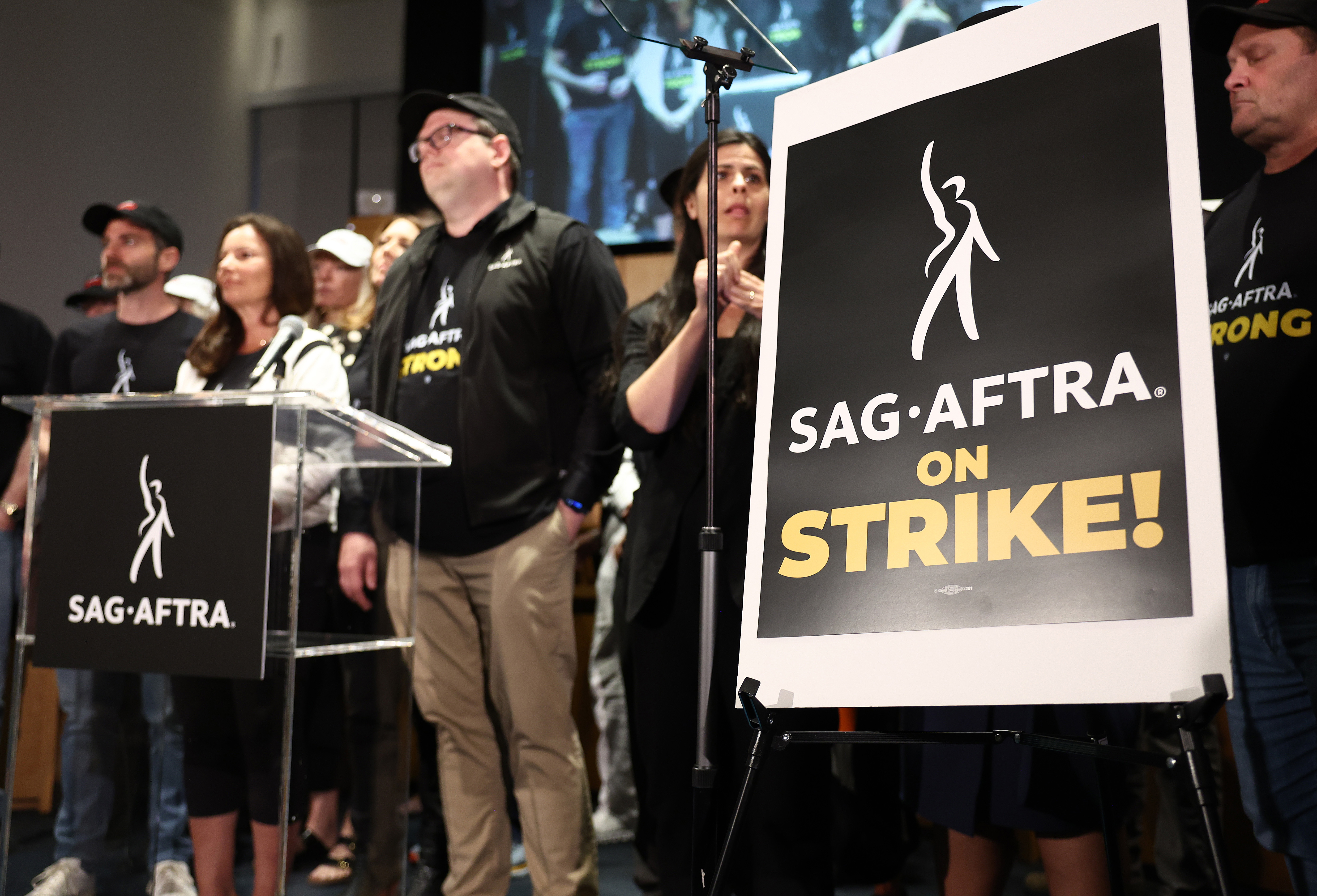Talks With SAG-AFTRA Suspended Over Union Revenue-Sharing Plan, AI
Union negotiators accuse studios of ‘bully tactics’

The smarter way to stay on top of broadcasting and cable industry. Sign up below
You are now subscribed
Your newsletter sign-up was successful
Talks to end the strike by SAG-AFTRA were suspended amid disputes over revenue sharing and artificial intelligence.
The actors union’s negotiating committee accused the studios, represented by the Alliance of Motion Picture and Television Producers (AMPTP), of “bully tactics” and distributing misleading information about its proposals.
The AMPTP said that after the union’s proposal on October 11, it is clear that the gap between the AMPTP and SAG-AFTRA is too great, and conversations are no longer moving us in a productive direction.
The two sides had med for five days, prompting expectations that the actors union was near a deal, like the Writers Guild of America, which ended its strike and ratified a new agreement. But those were shattered after Wednesday’s talks, with the union accusing industry CEOs of walking away from the bargaining table.
The AMPTP was especially critical of a SAG-AFTRA revenue-sharing proposal, which it claimed would cost $800 million a year by itself.
The union said that during negotiations, it had made “big, meaningful counters on our end, including completely transforming our revenue share proposal.”
The revenue-sharing plan would cost the media companies less than 57 cents per subscriber per year, according to the union, but the studios “intentionally misrepresented to the press the cost of the above proposal — overstating it by 60%.”
The smarter way to stay on top of broadcasting and cable industry. Sign up below
While the union claimed the latest offer from the studios was worth less than previous proposals, the AMPTP said its offer included a first-of-its-kind, success-based residual for high-budget SVOD productions; the highest percentage increase in minimums in 35 years, which would generate an additional $717 million in wages and $177 million in contributions to the Pension and Health Plans during the contract term; and a 58% increase in salaries for major role (guest star) performers wages on high budget SVOD programs.
The studios said they also met “nearly all” of the union’s demands on casting, including guardrails around self-tapes, options for virtual and in-person auditions, and accommodations for performers with disabilities.
In addition, the studios said that they offered substantial protections against actors being replaced by artificial intelligence.
The union rejected those assertions, saying, “These companies refuse to protect performers from being replaced by AI, they refuse to increase your wages to keep up with inflation and they refuse to share a tiny portion of the immense revenue your work generates for them.”
The union said it will continue to strike as long as it takes.
“We feel the pain these companies have inflicted on our members, our strike captains, IATSE, Teamsters and Basic Crafts union members, and everyone in this industry,” SAG-AFTRA said. “We have sacrificed too much to capitulate to their stonewalling and greed. We stand united and ready to negotiate today, tomorrow, and every day.”
In its statement, the AMPTP said, “We hope that SAG-AFTRA will reconsider and return to productive negotiations soon.”
Jon has been business editor of Broadcasting+Cable since 2010. He focuses on revenue-generating activities, including advertising and distribution, as well as executive intrigue and merger and acquisition activity. Just about any story is fair game, if a dollar sign can make its way into the article. Before B+C, Jon covered the industry for TVWeek, Cable World, Electronic Media, Advertising Age and The New York Post. A native New Yorker, Jon is hiding in plain sight in the suburbs of Chicago.

